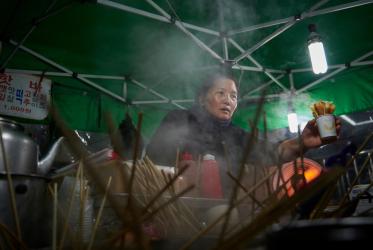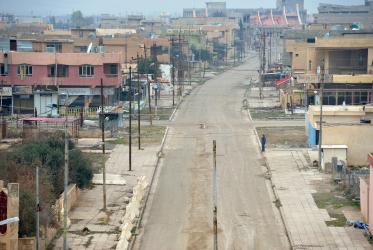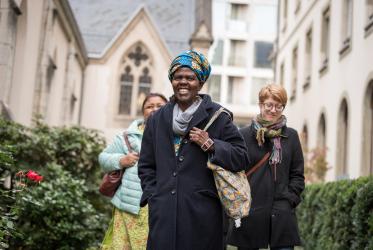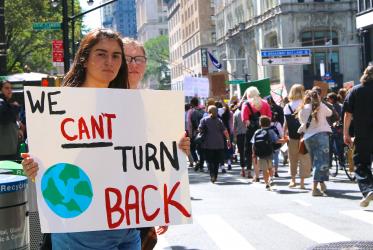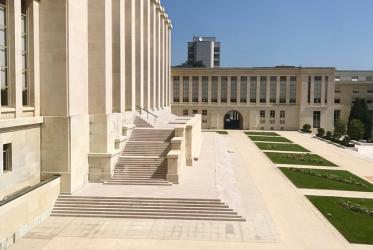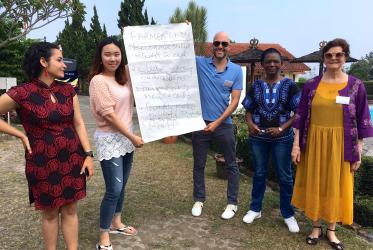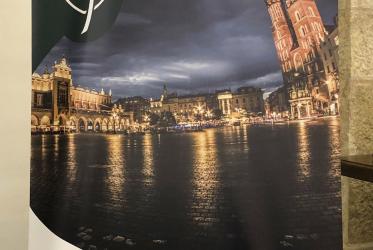Displaying 61 - 80 of 220
A visionary missionary heads home
25 March 2020
WCC publishes two new Bible studies penned by authors from Colombia
24 February 2020
As Season of Creation closes, climate work is just beginning
02 October 2019
WCC offers statement on racism before UN Human Rights Council
24 September 2019
School on economics proves “eye-opening” across globe
02 September 2019
Ecumenical young trailblazers
15 August 2019
Faltering Colombian peace process needs urgent work
07 June 2019

